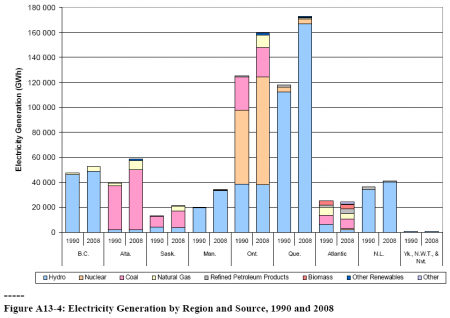
Richard Aldrich’s excellent GCHQ: The Uncensored Story of Britain’s Most Secret Intelligence Agency contributes significantly to the public understanding of the role secret intelligence agencies have played in world affairs and the domestic politics of Britain and elsewhere. From the codebreaking of the second world war to the frightening mass surveillance and data mining of the modern era, Aldrich provides a consistently interesting and informative account. Technical details on signals intelligence (SIGINT) techniques are relatively few, but the book contains a lot of new and interesting information running quite close to the present day.
GCHQ’s history
The Government Communication Headquarters (GCHQ) is Britain’s version of America’s National Security Agency (NSA) or Canada’s Communication Security Establishment (CSE). They are primarily the governments interceptors and decrypters of communications: from the telemetry data from the missile tests of foreign powers to (increasingly) the electronic records tracking the communication and behaviour of all ordinary citizens. Aldrich covers the history of GCHQ from the second world war virtually up to the present day: with long sections on the U.S.-U.K. intelligence alliance; the Cold War; progressing intelligence technologies; overseas listening stations and decolonization; terrorism; secrecy, the media, and oversight by politicians and the public; the post-Cold War era; and the modern day.
Aldrich describes an extraordinary number of cases of allies spying on one another: from the United States and United Kingdom during the interwar and WWII periods to India bugging Tony Blair’s hotel room during a Prime Ministerial visit to the considerable espionage conducted by the U.S. and U.K. against the United Nations Security Council and Secretariat in the lead-up to the 2003 Iraq War. It is safe to assume that everybody is spying on everybody all the time. Indeed, in the later chapters, GCHQ describes how private organizations and organized crime groups are increasingly getting into the game. For instance, he alleges that British banks have paid out billions of Pounds to hackers who have gotten into their systems and blackmailed them.
GCHQ also documents the collusion between private companies and espionage organizations, going back at least to the telegraph and earliest submarine cables. Right from the beginning, the owners and operators of these communication links secretly passed along data to intelligence organizations, which was used for purposes of diplomatic and military espionage, as well as to gain economic advantage through industrial espionage. Aldrich also describes how private companies have been made to build back doors into their products so that organizations like GCHQ and the NSA can crack the communications of people using them. This applied to manufacturers of cryptographic equipment in neutral countries like Switzerland during the Cold War.
Aldrich also argues that the Data Encryption Standard (DES) was intentionally weakened to allow NSA snooping, though I have read elsewhere that the NSA actually used its expertise to strengthen the algorithm. Aldrich does a good job of describing one deep tension in the current mandate of GCHQ: on one hand, it is increasingly encouraged to help private British companies like banks secure their computer and communication systems. At the same time, it tries to preserve back doors and insecure communication methods in products used by others, so as not to undermine its own espionage mandate. Similarly, Aldrich talks on a number of occasions about the tension between using intelligence information and protecting the sources and methods used to acquire it. While it may be especially damning to condemn the dubious actions of a foreign power using their own intercepted and decrypted communication, doing so inevitably informs them that you are reading their traffic. Something similar is true when it comes to using surreptitiously acquired information to prosecute criminal trials.
GCHQ contains lots of information on the spotty record of the world’s intelligence services, when it comes to predicting major events. He describes many situations where policy-makers were caught by surprise, because their spy services didn’t pass along warning. These include the Yom Kippur War, the overthrow of the Shah of Iran, the Soviet invasion of Czechoslovakia, the fall of the Berlin Wall, and others. Aldrich also describes the Iraq-WMD fiasco, what it shows about the analysis of intelligence services, and what some of its broader political ramifications were.
At many points, Aldrich identifies how GCHQ and the NSA are by far the most costly intelligence services of the U.K. and U.S. respectively. The NSA dwarfs the CIA, just as GCHQ dwarfs MI5 and MI6 in staffing and resources. This is reflective of the special importance placed on intercepted communications by policy-makers. It is arguably also demonstrative of how GCHQ has been able to use the deep secrecy of its work to evade government scrutiny and secure considerable material support.
GCHQ’s present
The last section of Aldrich’s book is positively frightening. He describes how the fear of terrorism has driven a massive increase in technical surveillance – certainly within the U.K. but very likely elsewhere as well. He describes how a 2006 European law requires telephone and internet companies to retain comprehensive records of the communications of their customers for ten years, and how the government is planning to store their own copy of the information for data mining purposes. Aldrich explains:
The answer [to why the government wants its own copy of the data] is ‘data mining’, the use of computers to comb through unimaginable amounts of information looking for patterns and statistical relationships. This practice now constitutes the most insidious threat to personal liberty. What makes surveillance different in the age of ubiquitous computer and the mobile phone is that our data is never thrown away. Machines routinely store millions of details about our everyday lives, and at some point in the future it will be possible to bring these all together and search them.
Aldrich quotes a disturbing warning from the retiring Director of Public Prosecutions, Sir Ken Macdonald GC. Macdonald warns that powers are being irreversibly granted to the state, and that “we may end up living with something we can’t bear.”
Personally, I think all this is much more dangerous than terrorism. If the choice is between tolerating a few terrorist attacks per year and building up a gigantic secret alliance between government and private companies, designed to track all the details of the lives of individuals, I would prefer the terrorism. After all, terrorist groups are weak outlaw organizations with limited resources. The state, by contrast, is massive, potent, permanent, and not always subject to effective oversight. Our fear of a few bands of fanatics (collectively far less dangerous than smoking or car crashes) is driving us into giving the state unparalleled ability to monitor everybody.
The book is similar in purpose to Matthew Aid’s The Secret Sentry: The Untold History of the National Security Agency, though I think Aldrich’s book is significantly better. I recommend the entire book to history buffs and those with an interest in intelligence or the Anglo-American alliance. The last section – on the growing power of the state in response to terrorism – I recommend to everybody.








